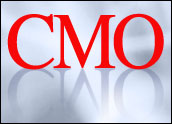
Aberdeen research conducted for “B2B TeleServices: The 2009 Buyer’s Guide” (November, 2009) has shown the end-user value of deploying external, customer-facing teams to source, nurture and convert the most highly qualified leads on behalf of an internal, B2B-focused field sales organization.
Additional findings in “Inside Sales Enablement: Let Them Drink Coffee!” provide insight into internal teams that can also create effective, top-of-the-funnel filtering methodologies. Yet how adept are the “closers” at taking the baton-pass to the finish line? Only 46 percent of top-performing companies in the latter report, for example, deployed proposal and quote configuration tools in support of the latter stages of sales deal-making.
The idea behind “lead-to-win” is to enable closers, channel partners and anyone else tasked with “sealing the deal” to make the most of what they are handed within the larger cycle of identifying, nurturing and closing sales opportunities. While marketing automation, outsourced teleservices bureaus and inside sales teams are empowered to provide closers with both quality and quantity leads, the “other side of the fence” needs to be highly efficient in moving deals to closure, and in dealing with cumbersome Requests for Proposal (RFPs) without re-inventing the wheel for each deal. By adopting the best practices of the top performers in industry, end-users can achieve better velocity, shorter selling cycles, revenue growth and, perhaps most important to selling professionals, the goal of hitting their numbers.
Upping the Ratio
A clear link can be established between the shorter sales cycles, higher proposal volume and better win/loss rates of the leading companies, and the more nuanced elements of advanced selling represented by their self-reported abilities.
The most popular strategies among Best-in-Class organizations to improve sales performance in the context of shrinking the sales cycle and improving win rates follow a number of themes, though two stand out: people and process. The Aberdeen benchmark report “Optimizing Lead-To-Win: Shrinking the Sales Cycle and Focusing Closers on Sealing More Deals,” published in May 2010, explores these capabilities in detail while suggesting that the many technologies adopted by Best-in-Class companies to support lead-to-win effectiveness represent a consistent theme. Top performers streamline their process with various solutions that help them sell more and sell faster.
Analytics and Contract Management
- Sales analytics refers to an enterprise-wide ability to view real-time activity and forecasted sales in the context of business intelligence gathered in non-sales departments within the organization. Research conducted for the upcoming Aberdeen benchmark report “Sales Forecasting: Analytics to the Rescue” (June, 2010) indicates that users of sales forecasting tools enjoy a 41 percent premium over others in terms of the percentage of their sales reps who achieve quota, as well as a similar 40 percent lead conversion rate delta.
- In contrast to “buy-side” contract management solutions used by procurement or purchasing staff to ensure the best price and legal compliance, “sell-side” sales contract management is used by business development teams to automate and enable faster, more accurate production and delivery of approved contracts to a company’s prospects or customers. End-users maintain and grow their customer base by automating the process of timely contract extensions, revisions and completions; understand the value of keeping their closers and account managers focused on relationship management, communications and revenue production; and help standardize the interactions and behaviors between sellers and buyers.
To learn more about the key technologies that help leading companies shorten their sales cycle and close more deals, read the Aberdeen benchmark report today: “Optimizing Lead-To-Win: Shrinking the Sales Cycle and Focusing Closers on Sealing More Deals.”
Peter Ostrow is research director of sales effectiveness at the Aberdeen Group.















































